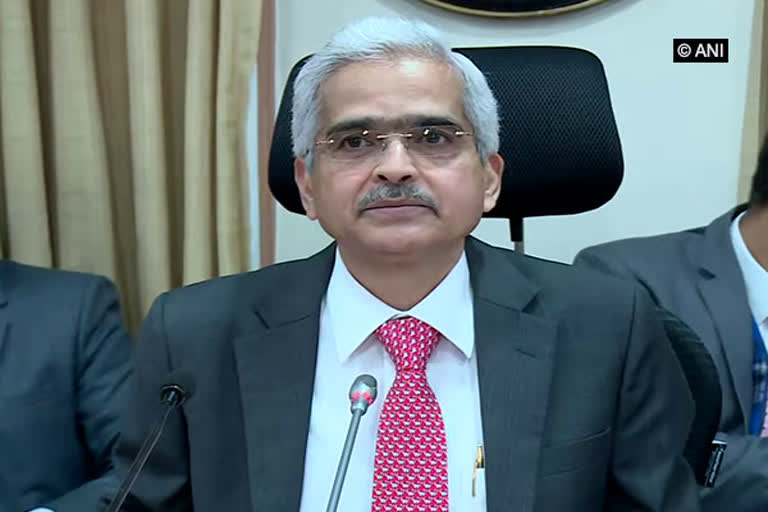Pune:RBI Governor Shaktikanta Das Saturday said revised guidelines to deal with stressed assets will sustain improvement in credit culture as it provides for additional provisioning, a strong disincentive for the delay in starting resolution proceedings.
After the Supreme Court nullified the Reserve Bank's circular of February 12, 2018, for resolution of stressed assets, the central bank issued a revised 'Prudential Framework for Resolution of Stressed Assets' Friday.
The revised framework for resolving stressed assets by offering lenders a 30-day period to label an account an NPA but has withdrawn all other resolution methods.
The new directions retain the basic spirits of February 12, 2018, circular as it mandates higher provisioning, bankruptcy options as well as do not allow any other resolution methods outside the new norms.
Speaking at the NIBM, at the 15th Annual Convocation of Post Graduate Diploma in Management, here, the RBI governor said the new guidelines provide a system of "strong disincentives" in the form of additional provisioning for the delay in initiation of resolution or insolvency proceedings.
Also read:RBI to issue on tap licence guidelines on small finance banks in August
The new framework makes inter-creditor agreements mandatory and provides for a majority decision to prevail, he said.
Further, wherever necessary, the Reserve Bank of India will issue directions to banks for initiation of insolvency proceedings against borrowers for specific defaults, so that the momentum towards effective resolution remains uncompromised
"It is expected that the revised prudential framework for resolution of stressed assets will sustain the improvements in credit culture that have been ushered in by the efforts of the Government and the Reserve Bank so far, and that, it will go a long way in promoting a strong and resilient financial system in India," Das said.
The Supreme Court order came on a petition filed by the central bank challenging the Allahabad High Court order, which had asked it and the finance ministry to treat the power sector NPAs separately as their woes were mostly driven by external factors.
Power sector companies, which were affected the most by the circular, argued that their outstanding loans of Rs 5.65 lakh crore (as of March 2018) were a result of factors beyond their control such as unavailability of fuel and cancellation of coal blocks by the apex court/government and non-payment by state-run discoms.
GMR Energy, RattanIndia Power, Association of Power Producers, Independent Power Producers Association of India, Sugar Manufacturing Association from Tamil Nadu and a shipbuilding association from Gujarat had moved different courts against the circular.
The petitioners had challenged the circular arguing that applying a 180-day limit to all sectors of the economy without going into the special problems faced by each sector would treat "unequal equally" and would be arbitrary and discriminatory, and therefore, violative of Article 14 of the Constitution.
